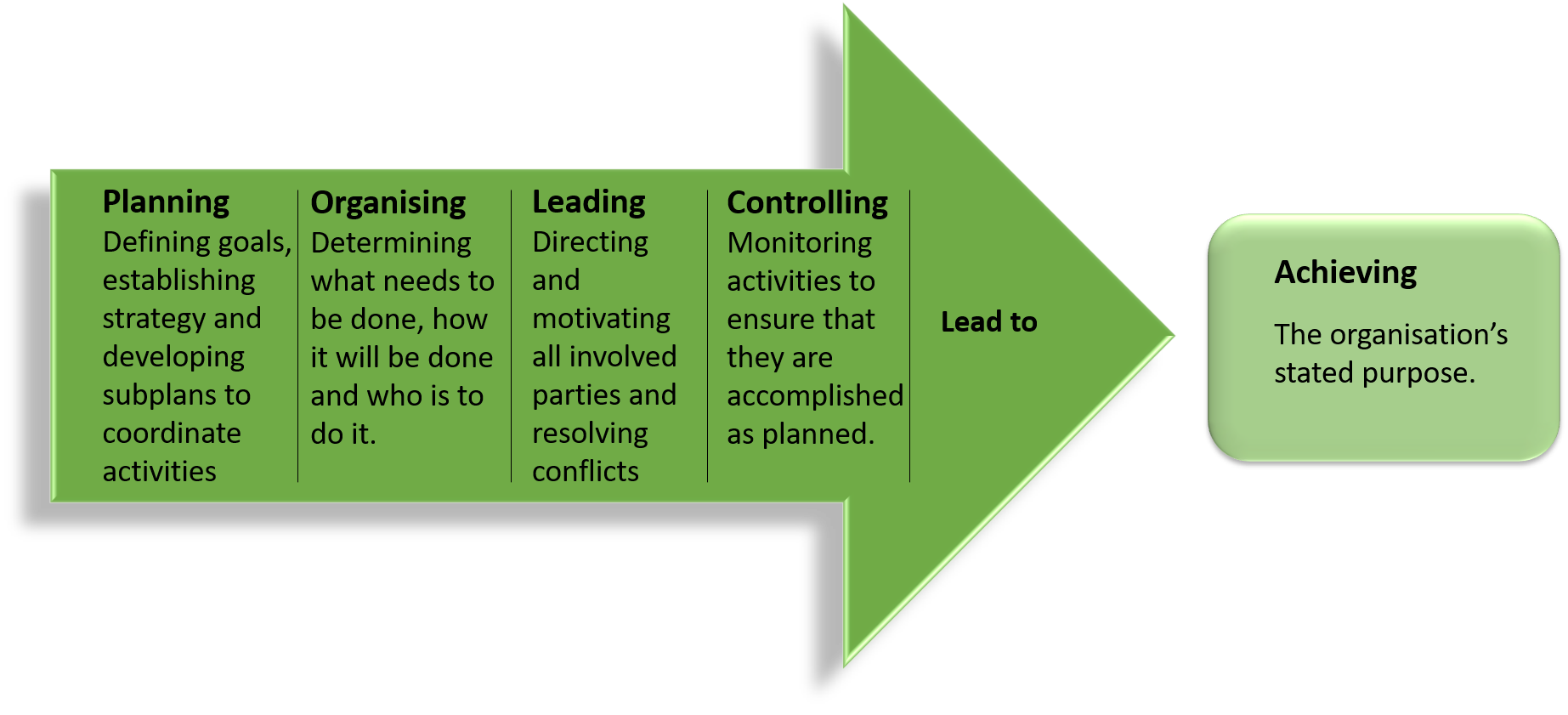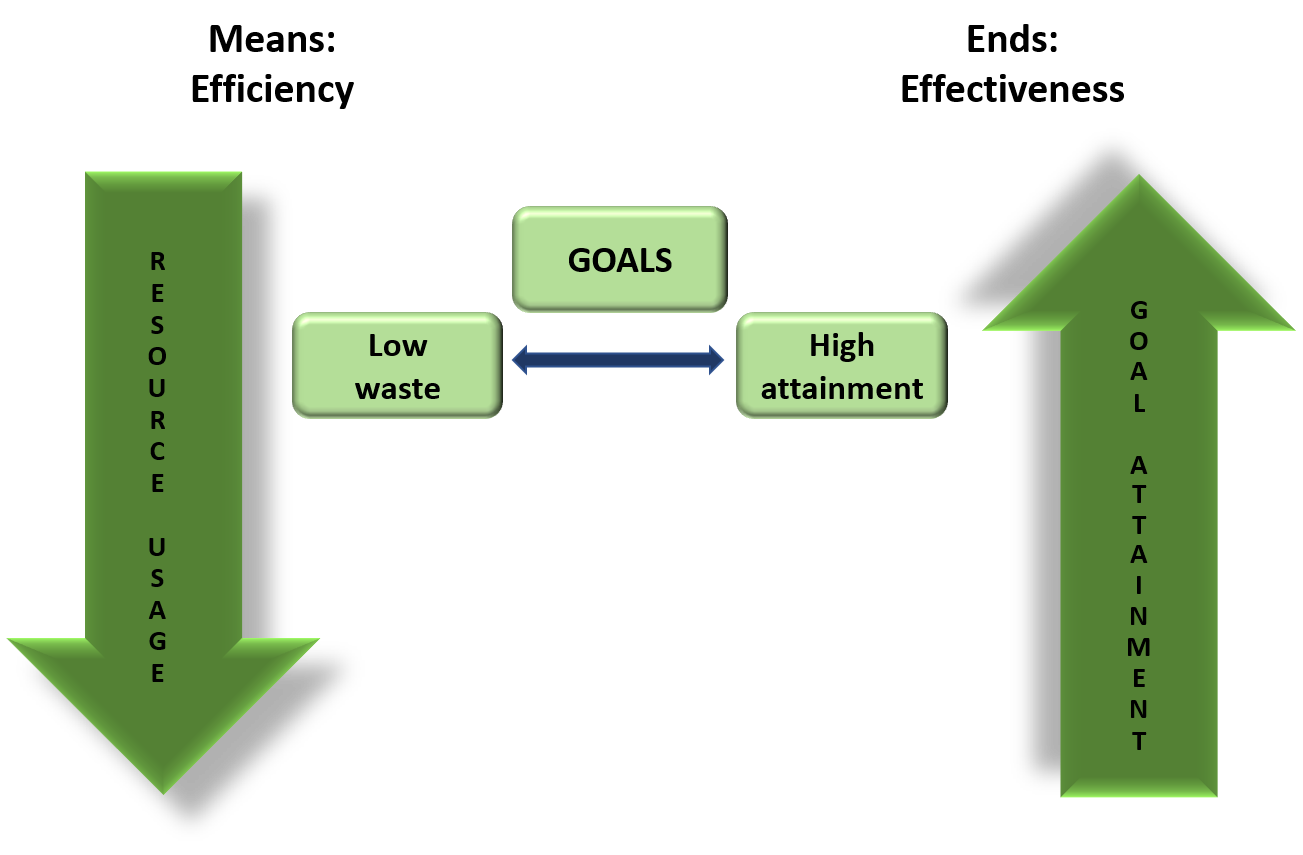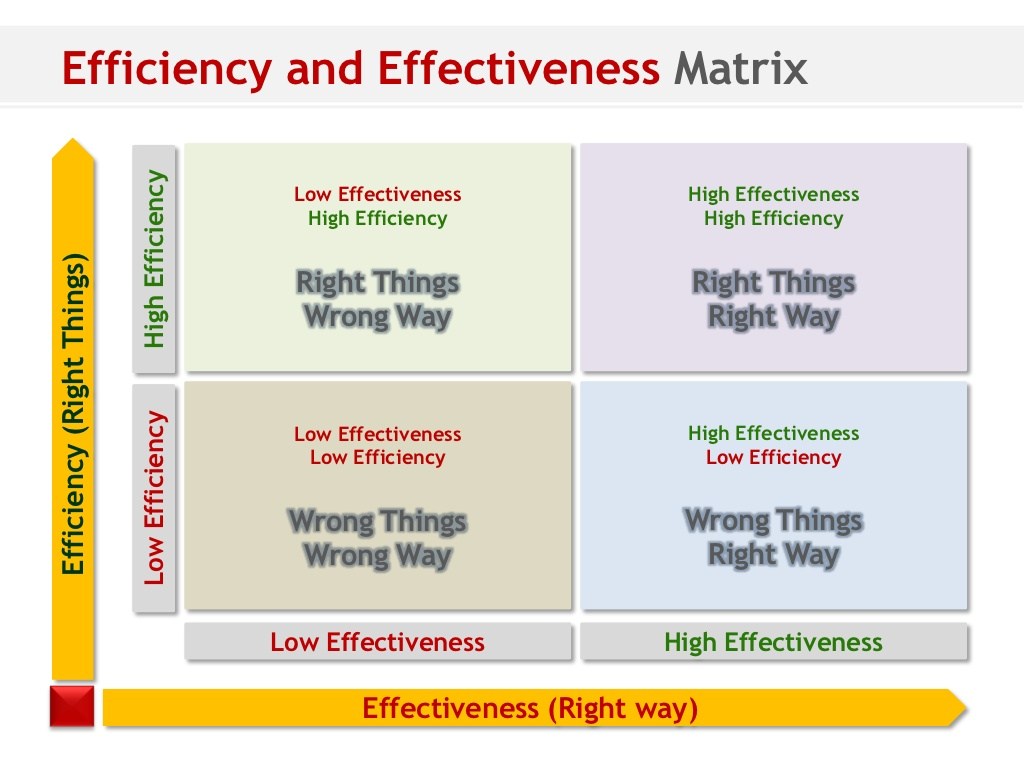Managers, on all levels (including supervision), work with and through other people to achieve organisational goals and objectives. They do not attempt to carry out all tasks themselves. Managers have the use of, and are responsible for, a range of resources, including people, money, equipment and information. They are generally considered to spend their time involved with the traditional management functions of planning, organising, leading and controlling. These functions are often referred to as the management process.
Managers
Managers work in organisations, but not everyone in an organisation is a manager. For simplicity sake, we can divide organisational members into two categories: operatives or managers. Operatives are people who work directly on a job or task and have no responsibility for overseeing the work of others. In contrast, managers direct the activities of other people. Managers may also have some operative responsibilities; for example, an insurance claims’ supervisor may also be responsible for processing insurance claims in addition to overseeing the activities of the other customer officers in the claims department. However, our definition presumes that a manager has subordinates.
Three levels of management found in most organisations are:
Operational: Managers are generally involved in the supervision of non-management personnel. They are essentially technical managers responsible for producing products or services.
Tactical: Middle managers translate the goals of the organisation into specific objectives and activities. There is responsibility for the co-ordination of resources, particularly at departmental level. They direct and control the work of others.
Strategic: Senior managers are responsible for the efficiency and effectiveness of the organisation. They manage the interaction with the external environment. A long-term, future-oriented focus is required to set the most appropriate organisational mission and goals.
The Management Process
A common functional description of management is the process or systematic way that a manager carries out the activities necessary to achieve organisational goals. This requires the manager to plan, organise, lead and control activities, utilising all organisational resources within the context of his or her organisation’s environment. These functions involve the following activities:
Planning: Planning activities involve analysing the organisation’s current situation including the external environment, identifying and prioritising appropriate organisational goals and determining the necessary actions required to achieve these goals.
Organising: Organising activities include the identification and division of the work to be undertaken to accomplish the organisational goals and the allocation and co-ordination of necessary material and human resources.
Leading: Leading activities are the ways in which managers direct and influence their subordinates to perform the tasks that are essential for achieving the organisational goals.
Controlling: Controlling activities involve monitoring and evaluating actual performance compared to set standard to ensure that the organisational goals are in fact being reached.

Effectiveness vs Efficiency
Managers are mainly responsible for two actions:
- Enhance efficiency
- Enhance effectiveness
Efficiency is a vital part of management. It refers to the relationship between inputs and outputs. If you get more output for a given input, you have increased efficiency. Similarly, if you can get the same output from less input, you again increase efficiency. Since managers deal with input resources that are scarce – money, people, equipment – they are concerned with the efficient use of these resources. Management, therefore, is concerned with minimising resource costs.
It is not enough simply to be efficient. Management is also concerned with getting activities completed; that is, it seeks effectiveness. When managers achieve their organizations’ goals, we say they are effective. So, efficiency is concerned with means and effectiveness with ends.


Efficiency and effectiveness are interrelated. For instance, it is easier to be effective if one ignores efficiency. If you had no budgetary constraints it may have been easier to achieve your targets!
Management is therefore concerned not only with getting activities completed (effectiveness), but also with doing so as efficiently as possible.
Can organisations be efficient and yet not be effective? Yes, by doing the wrong things well!
Your efficiency as a worker will largely determine your career success. The more you can get done in a day, the more valuable you become to the employer. The less you accomplish, the more "expendable" you are.